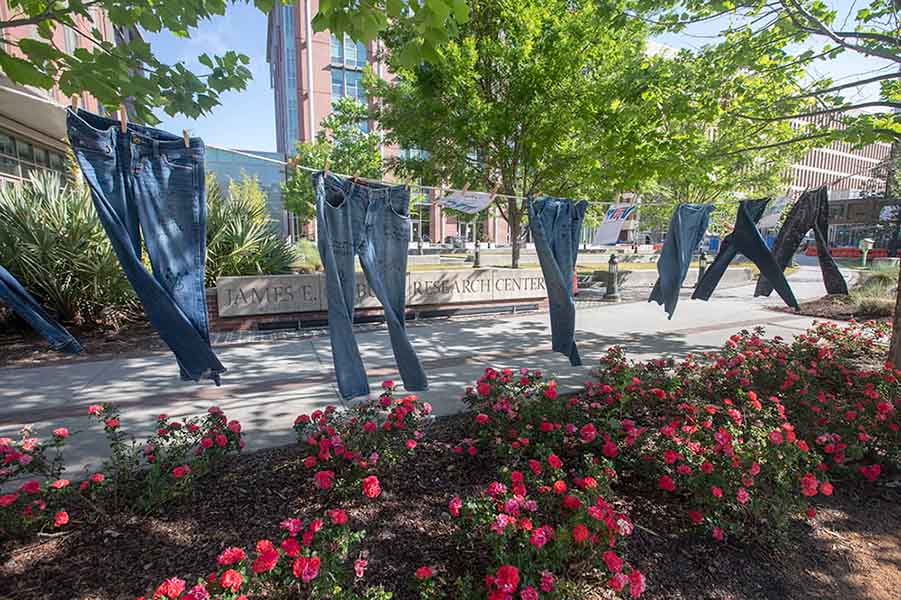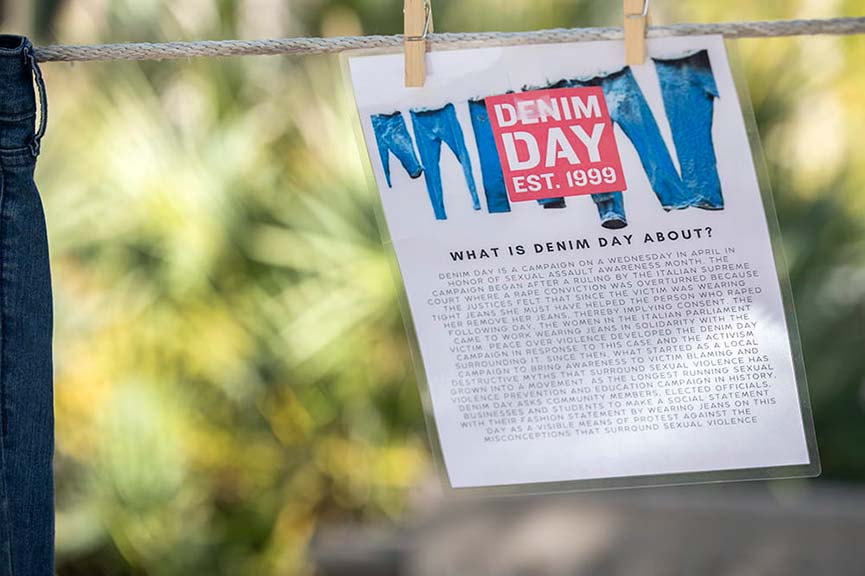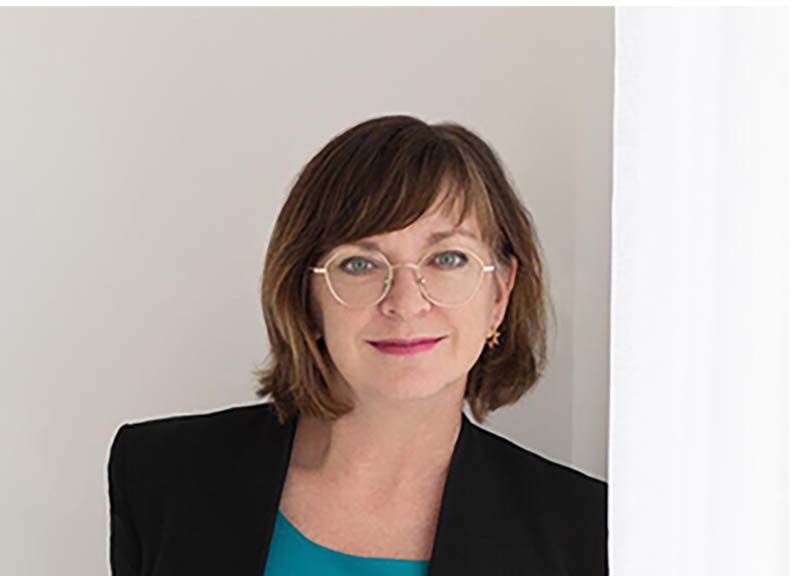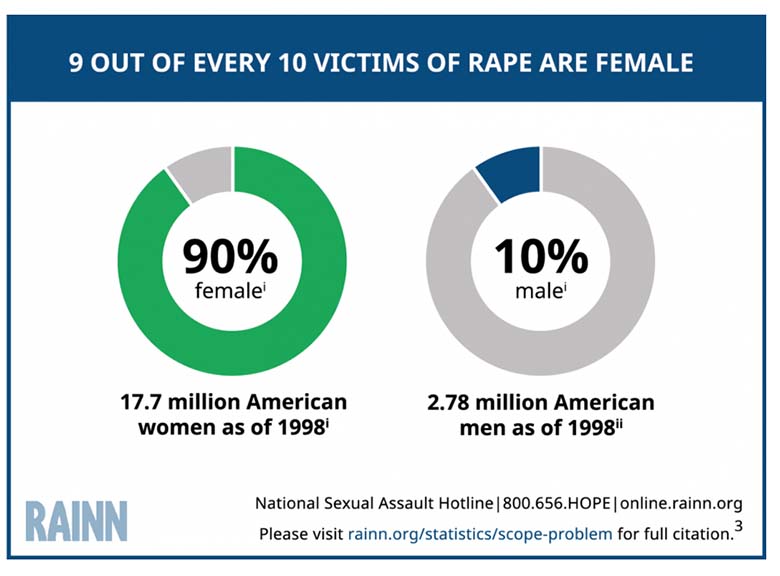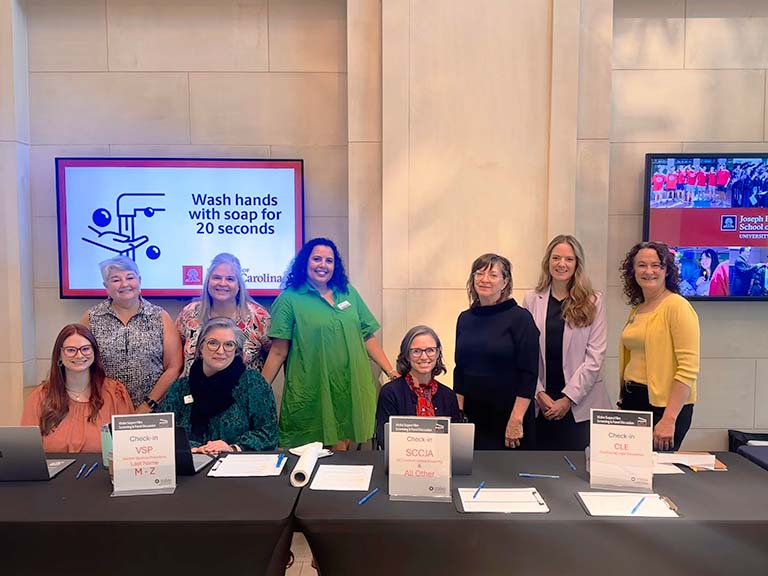Denim Day is one of numerous events that MUSC and other organizations are participating in as part of April’s Sexual Assault Awareness Month, known as SAAM. (2022 photo courtesy of the Medical University of South Carolina/Carolina News and Reporter)
The Medical University of South Carolina in Charleston is among organizations across the world that encouraged people to wear denim April 24 to raise sexual assault awareness.
The denim tradition dates to a 1998 case in Italy, in which a man was convicted of raping a woman who was wearing tight jeans.
The conviction was overturned by Italy’s highest appeals court the following year. The court argued, among other reasons, that it would have been impossible for the accused man to have taken off the 18-year-old woman’s tight jeans without her help, the Associated Press reported.
The overturned conviction prompted female members of the Italian Parliament to wear jeans to work the next day in solidarity with the survivor. That solidarity spread across the globe in the years since.
“The more awareness we have, the better we can help people,” said Karen Hughes, a forensic nurse with MUSC. “And also, for those who have been sexually assaulted, they know that there’s resources, and they know that they’re not alone.”
Denim Day is one of numerous events that MUSC and other organizations are participating in as part of April’s Sexual Assault Awareness Month, known as SAAM.
MUSC carried on its annual tradition of hanging denim jeans on campus along with supportive messages for survivors of sexual assault.
The medical school and others participated in the monthlong events for the #30DaysofSAAM Challenge, created by the National Sexual Violence Resource Center.
Peace Over Violence, a nonprofit, officially formed the Denim Day campaign in United States.
SAAM highlights the importance of advocacy, awareness and conversations about sexual assault, according to Sara Barber, executive director of the South Carolina Coalition Against Domestic Violence and Sexual Assault.
“We have to acknowledge that this is present everywhere,” Barber said. “We have to acknowledge that we need different pathways to support people. We have to acknowledge a willingness to have hard conversations about this.”
This year marks the 23rd Sexual Assault Awareness Month. This year’s theme is “Building Connected Communities.” Its goals are promoting supportive, cohesive communities that will lessen the possibility of sexual abuse, assault and harassment, according to the National Sexual Violence Resource Center.
Although sexual violence can happen to anyone, the Rape, Abuse and Incest National Network reports that it most frequently affects women. Women make up 90% of rape survivors, and 1 in 6have experienced a rape or attempted rape.
One in 26 males are a survivor of a rape or attempted rape, the CDC reports.
Victim blaming is a common reaction to sexual assault allegations, and according to some experts, doing “everything right” does not guarantee protection from assault.
“If they have great self esteem, if someone intervened, if they weren’t drinking too much, if they know self defense — they could still be a victim of sexual assault,” Hughes said.
Victims are encouraged first to go to the police. And Barber encourages survivors to reach out to a rape crisis center for help.
“If someone sexually assaulted you, they have committed a most intimate and deeply damaging crime, and you are going to need help in navigating that, whether you decide to report to law enforcement or not,” Barber said.
Beginning in 2001, advocates held sexual violence prevention activities in April even before SAAM was first nationally commemorated, according to the National Center. These events originally took place during the week-long Sexual Assault Awareness Week.
A growing discourse within anti-sexual violence campaigns began to grow during the Civil Rights Movement. Black women and other women of color began speaking out against violence against women, with advocates such as Rosa Parks leading the discussion.
The National Center offers materials to groups, including educational institutions, to promote an anti-sexual violence agenda. It’s funded by the CDC.
Creating safer and more inclusive environments doesn’t just benefit survivors who are moving forward but also promotes safety for communities, according to Laura Palumbo, communications director for the National Center.
“There’s this strong connection between the resources that are available to support overall health and well-being of our communities,” Palumbo said. “By trying to work for a positive change in our communities, (know) that we can be making a difference to prevent sexual abuse, assault and harassment.”
The South Carolina coalition also launched a campaign to combat violence and sexual assault. The It’s Your Move campaign emphasizes how important it is to act and make decisions, to stop sexual assault, such as emphasizing respect, communication, limits and bystander intervention.
The organization helps community organizations to offer direct services to survivors of domestic and sexual violence, such as a crisis hotline, counseling and shelter. The coalition also focuses on public policy advocacy for issues impacting survivors, training and provision of legal services, according to Barber.
Barber emphasized how compassion for survivors often sets the tone for their healing journey.
“You may be the first person they told, and your reaction is going to set the path for them to either find help and healing or to pull inwards and be ashamed about what’s happened to them,” Barber said. “So, we ask that people believe someone who discloses to them, listens to them, and then is willing to help them find the resources that they need.”
The organization showed a screening and held a discussion panel for the film Victim/Suspect on April 12 at the USC School of Law. The film showed survivors of sexual assault being charged with filing false reports, which are less common than actual sexual assaults.
The NSVRC estimates that 2% to 10% of sexual assault reports are false.
“We need to be heard more, and we need to be taken more seriously,” said Alaysha Barnes, a USC criminology and criminal justice graduate student who attended the screening.
Barber, a mother of two daughters, said speaking up against sexual violence is key.
“I’ve always talked with them about these issues… and so now they carry forward that they challenge others,” Barber said. “It sounds like this is always fraught and hard work, but it doesn’t have to be.”
And sexual assault is more common than some might think.
“There’s many, many people that are walking around that have never told anybody or never received medical care, or just keep it to themselves, and they just continued on with their life,” Hughes said.
Children are also frequently the targets of sexual assault because of their vulnerabilities, including being easier to coerce, according to the nonprofit Mama Bear Effect.
Barber encourages survivors to reach out for help.
“I would encourage people to please reach out because there are people who will believe you,” Barber said. “And there are people who will help you navigate the path that is unique to you and help you move forward.”
There are many resources to help those affected. The National Sexual Assault Hotline can be reached at 1-800-656-4673.
Outraged by the overturn of a rape conviction due to the survivor wearing jeans, female lawmakers in Italy took swift action and demonstrated by showing up to work in jeans. This inspired a movement that eventually spread to the United States. (Photo courtesy of MUSC/Carolina News and Reporter)
Sara Barber encourages survivors to seek help because “there are people who will believe you.” (Photo courtesy of the SCCADVASA/Carolina News and Reporter)
Women make up 90% of rape survivors, and 1 in 6 have experienced a rape or attempted rape. One in 26 males are a survivor of a rape or attempted rape, RAINN and the CDC report. (Image courtesy of the Rape, Abuse & Incest National Network/Carolina News and Reporter)
“We need to be heard more, and we need to be taken more seriously,” said USC student Alaysha Barnes. (Photo by Shamariah Vanderhorst/Carolina News and Reporter)

